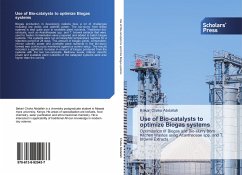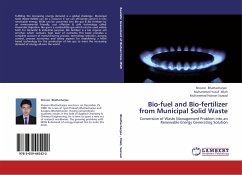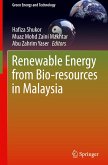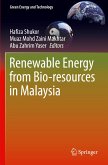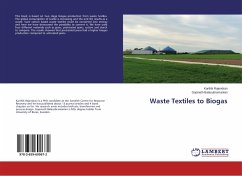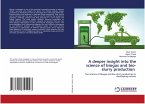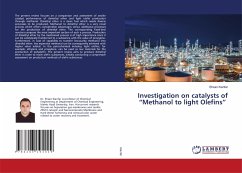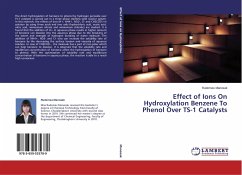Biogas production in developing nations face a lot of challenges including low yields and calorific power. The bio-slurry from these systems is also quite poor in available plant nutrients. Traditional bio-catalysts, such as Acanthaceae spp. and T. brownii extracts that were used to hasten fermentation were prepared and added to batch biogas systems. The systems were run at mesophilic temperature regimes for a retention period of 28 days. The amount of biogas yields, composition, inferior calorific power and available plant nutrients in the bio-slurry formed was continuously monitored against a control setup. The results indicated a significant increase in amount of biogas produced from the systems with the two bio-catalysts. Methane levels, inferior calorific power and available plant nutrients of the catalyzed systems were also higher than the control.
Bitte wählen Sie Ihr Anliegen aus.
Rechnungen
Retourenschein anfordern
Bestellstatus
Storno

